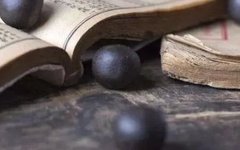 This article introduces how to regulate four types of constitution: Yin Deficiency, Yang Deficiency, Qi Deficiency, and Blood Deficiency using traditional Chinese medicine (TCM).1. Yin DeficiencyIndividuals with Yin deficiency lack Yin fluids in the body. What are Yin fluids? They refer to moisture or body fluids. So, how can we tell if someone has Yin deficiency? A prominent feature of Yin deficiency is the sensation of heat in the five hearts (the palms of the hands, soles of the feet, and the chest). This sensation occurs because there is insufficient Yin, leading to an excess of Yang. The excess Yang gathers and generates internal heat, known as Xu Re (虚热, false heat), which spreads along the meridians from the chest to the limbs, resulting in the feeling of heat in the five hearts. This phenomenon is more pronounced in the afternoon and evening and can lead to insomnia, as the internal heat causes restlessness, making it difficult to fall asleep. People with Yin deficiency often experience dryness in the mouth and throat, constantly wanting to drink water. Water serves a moisturizing function, similar to how land requires irrigation. Therefore, those with Yin deficiency frequently crave water, particularly cold water, to ‘cool down’ the internal heat. However, drinking does not quench their thirst effectively, as the water does not circulate properly within the body. Individuals with Yin deficiency also tend to sweat excessively, a condition known as night sweats (盗汗, dao han), where sweat escapes during the quiet of the night without them realizing it. This occurs because the Yin fluids are disturbed by internal heat and cannot be retained, leading to leakage. Additionally, those with Yin deficiency often have dry stools due to a lack of moisture in the intestines. Recommended TCM formula: Liang Wei Di Huang Wan (六味地黄丸, Six-Ingredient Rehmannia Pill). If the internal heat is significant, Zhi Bai Di Huang Wan (知柏地黄丸, Anemarrhena and Phellodendron Rehmannia Pill) can be used, which adds two herbs, Zhi Mu (知母, Anemarrhena) and Huang Bai (黄柏, Phellodendron), to enhance the heat-clearing effect.
This article introduces how to regulate four types of constitution: Yin Deficiency, Yang Deficiency, Qi Deficiency, and Blood Deficiency using traditional Chinese medicine (TCM).1. Yin DeficiencyIndividuals with Yin deficiency lack Yin fluids in the body. What are Yin fluids? They refer to moisture or body fluids. So, how can we tell if someone has Yin deficiency? A prominent feature of Yin deficiency is the sensation of heat in the five hearts (the palms of the hands, soles of the feet, and the chest). This sensation occurs because there is insufficient Yin, leading to an excess of Yang. The excess Yang gathers and generates internal heat, known as Xu Re (虚热, false heat), which spreads along the meridians from the chest to the limbs, resulting in the feeling of heat in the five hearts. This phenomenon is more pronounced in the afternoon and evening and can lead to insomnia, as the internal heat causes restlessness, making it difficult to fall asleep. People with Yin deficiency often experience dryness in the mouth and throat, constantly wanting to drink water. Water serves a moisturizing function, similar to how land requires irrigation. Therefore, those with Yin deficiency frequently crave water, particularly cold water, to ‘cool down’ the internal heat. However, drinking does not quench their thirst effectively, as the water does not circulate properly within the body. Individuals with Yin deficiency also tend to sweat excessively, a condition known as night sweats (盗汗, dao han), where sweat escapes during the quiet of the night without them realizing it. This occurs because the Yin fluids are disturbed by internal heat and cannot be retained, leading to leakage. Additionally, those with Yin deficiency often have dry stools due to a lack of moisture in the intestines. Recommended TCM formula: Liang Wei Di Huang Wan (六味地黄丸, Six-Ingredient Rehmannia Pill). If the internal heat is significant, Zhi Bai Di Huang Wan (知柏地黄丸, Anemarrhena and Phellodendron Rehmannia Pill) can be used, which adds two herbs, Zhi Mu (知母, Anemarrhena) and Huang Bai (黄柏, Phellodendron), to enhance the heat-clearing effect.

2. Yang DeficiencyWhere there is Yin, there is Yang; Yin and Yang are relative, like the two sides of a coin. Yin is tangible, while Yang is intangible. For example, a cup of hot water on the table represents Yin, while the heat felt when touching the cup represents Yang. Yang energy, although invisible, warms the body. Therefore, the most significant characteristic of Yang deficiency is a sensitivity to cold; even a breeze can make one feel cold, necessitating warm clothing even in summer. Individuals with Yang deficiency often have cold extremities, with hands and feet feeling perpetually cold. They may sneeze and have a runny nose upon waking, experience frequent urination, and find that drinking a glass of water leads to multiple trips to the bathroom, with both urine and nasal discharge being clear and cold. The Huang Di Nei Jing (黄帝内经, Yellow Emperor’s Inner Canon) states: “All diseases related to water and fluids are clear and cold, which belong to cold.” Those with Yang deficiency may also suffer from diarrhea and avoid cold foods, as consuming them can easily lead to loose stools. In severe cases, discomfort in the abdomen may occur as early as five or six in the morning while still asleep. Recommended TCM formula: Fu Zi Li Zhong Wan (附子理中丸, Aconite and Ginseng Pill), which addresses both spleen Yang deficiency and kidney Yang deficiency, taking care of both congenital and acquired aspects.3. Qi DeficiencyIndividuals with Qi deficiency resemble a deflated ball, lacking vitality. This does not mean they are physically deflated, but rather that they lack energy. The most significant feeling for those with Qi deficiency is easy fatigue, often feeling sleepy and unable to muster energy. When walking, they may appear hunched over, with their heels seeming heavy. When standing or sitting, they often seek support. The saying goes, “Stand like a pine, sit like a bell, walk like the wind,” indicating that one should have a proper posture when standing, sitting, and walking. Those with Qi deficiency stand slouched, sit in a relaxed manner, and walk slowly. They may speak softly and feel as if they cannot catch their breath, a condition referred to in TCM as Shaoqi Lanyan (少气懒言, lack of energy and reluctance to speak). Individuals with Qi deficiency also tend to sweat excessively, known as spontaneous sweating (自汗, zi han), which occurs during the day without heat or significant activity. In severe cases, they may experience organ prolapse, such as gastric or uterine prolapse, as Qi has a stabilizing function, akin to an invisible hand supporting the organs. Once Qi is deficient, it is like a person losing strength, causing everything to drop. Recommended TCM formula: Bu Zhong Yi Qi Wan (补中益气丸, Tonify the Middle and Augment Qi Pill), which can both tonify and uplift Qi.4. Blood DeficiencyBlood deficiency is also a significant issue for modern individuals, especially women. Due to physiological characteristics such as menstruation, pregnancy, childbirth, and lactation, women are more prone to blood loss and deficiency. What are the signs of blood deficiency? The most notable feature is a pale complexion, lacking luster and color, with dry and brittle hair that breaks easily. Nails may also appear dry and pale, breaking easily and growing slowly. Individuals with blood deficiency may experience dizziness upon standing after squatting, occasional palpitations, and a racing heart, feeling as if they have a rabbit in their chest. Women with blood deficiency may also experience irregular menstruation, with delayed periods and lighter menstrual flow, referred to in TCM as late menstruation (月经后期, yue jing hou qi). Recommended TCM formula: Si Wu Ke Li (四物颗粒, Four Substance Granules), a well-known blood tonifying formula based on Si Wu Tang (四物汤, Four Substance Decoction).
-END-
Copyright Notice:
This public account shares articles and videos, and the copyright belongs to the relevant rights holders. If there is any improper use, please feel free to contact us. The articles and videos are for learning and communication purposes only; please do not use them for self-medication.
It is said that TCM enthusiasts are following the public account below.
A public account dedicated to teaching you how to use TCM and Chinese herbs for health, with a chat group of 300,000 TCM enthusiasts. Scan the QR code below to join the group.
